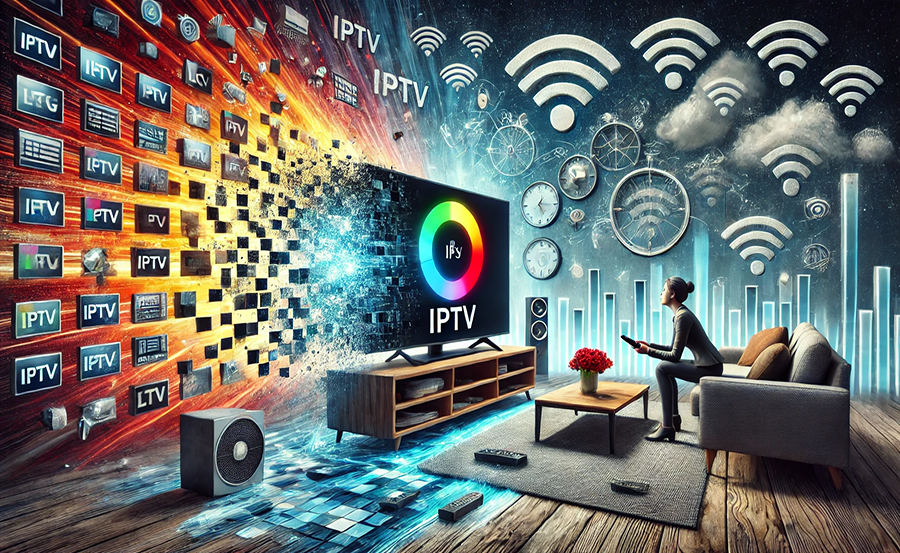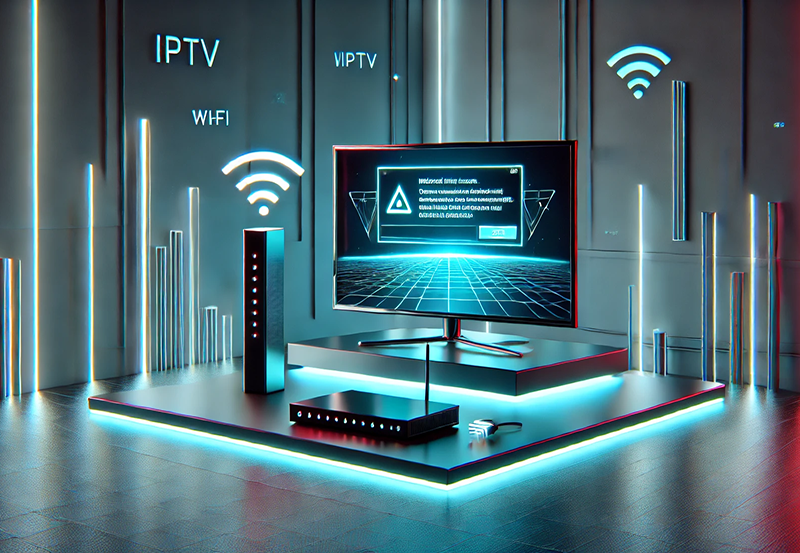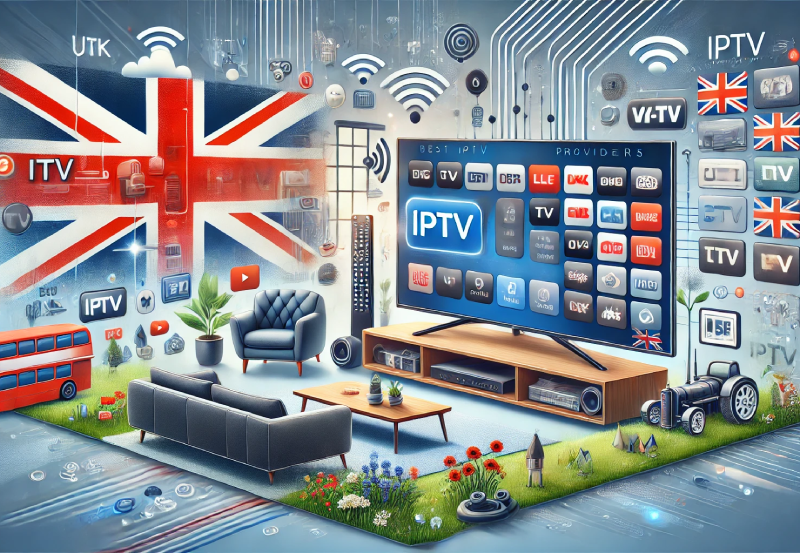Let’s face it, the thrill of watching your favorite shows can quickly turn into frustration with the smallest hint of lag. Whether it’s buffering pauses or choppy video quality, IPTV lag on your Wi-Fi network can be a real pain. If you’re scratching your head wondering how to get the best IPTV service you deserve, you’re not alone. In this article, we’ll dive into the top ten proven ways to address those pesky lag issues. By the end, you’ll be well-equipped to maximize your IPTV experience. Ready for a smooth viewing journey? Let’s get started!
- Buy 1 Year IPTV Subscription and Enjoy Unlimited Content
Understanding the Basics: What Causes IPTV Lag?
Decoding Internet Speed Factors
Your internet speed plays a significant role in how your IPTV performs. The bandwidth you have available can impact the quality of your streaming. Are you aware that too many devices connected simultaneously could cause a bottleneck effect? This could be one reason why your M3U playlists for IPTV aren’t playing as smoothly as they should.
Another aspect to consider is the actual speed you are receiving from your service provider. It might not always match what you’re paying for. Many users overlook this aspect until it becomes glaringly obvious, manifesting as lag during that crucial game-winning moment or the climax of a movie.
The Role of Your Router in Streaming
Your router is like a traffic cop directing digital traffic. An outdated model might not handle the high-speed data-demanding nature of IPTV services effectively. Checking if your router supports the latest wireless standards is essential, wouldn’t you agree?
A little-known tip is the placement of your router. Sounds trivial? It’s not. Ensuring it’s centrally located and free from obstructions can significantly enhance your Wi-Fi performance.
Top 10 Effective Ways to Fix IPTV Lag on Your Wi-Fi Network
1. Optimize Your Router’s Placement
Let’s kick off with the simple yet often ignored step—router placement. Placing your router in a central location may seem obvious, but signal interference could make even the best IPTV service falter. Make sure it’s also elevated, like on a shelf, to avoid blockage from furniture and walls.
2. Regularly Update Your Router’s Firmware
Keep your router’s firmware up to date. Router manufacturers frequently release updates to enhance performance and security. Failing to update could mean missing out on these improvements, and nobody wants that, right?
3. Use Ethernet Over Wi-Fi Wherever Possible
The reliability of a wired connection is unmatched. Whenever feasible, use an Ethernet cable instead of relying solely on Wi-Fi. This can make a noticeable difference when streaming M3U playlists for IPTV, offering stability that wireless connections might lack.
How to Implement This
- Check if your IPTV device has an Ethernet port.
- Simply connect the Ethernet cable from your router to your device.
- Enjoy more stable, lag-free viewing.
4. Prioritize IPTV Traffic on Your Network
Many routers allow you to prioritize certain types of traffic. This is often called Quality of Service (QoS) settings. By giving priority to IPTV traffic, you can reduce lag significantly. Check your router’s manual to explore this feature.
5. Invest in a Dual-band or Tri-band Router
This might sound like an investment, but dual-band or tri-band routers offer multiple frequency bands. This means you can spread out your devices to avoid congestion, helping your IPTV streams run smoothly.
6. Reduce Interference from Other Devices
Many devices operate on similar frequency bands like your Wi-Fi. Household gadgets like microwaves and phones might interfere. Try limiting their usage during active streaming. This method can be surprisingly effective.
7. Conduct Regular Speed Tests
Perform regular speed tests to know exactly what speed you’re getting versus what you’re promised. Consider using tools like Speedtest.net to get accurate measurements. Knowledge is indeed power here.
8. Clear Your Cache and Optimize Your Device Settings
Ensuring your IPTV device or app is running efficiently can make a world of difference. Clear cache regularly to avoid slow loading times. Moreover, adjusting your device’s settings to optimal performance settings helps as well.
Device Optimization Tips
- Clear cache and temporary files.
- Close background apps.
- Monitor device temperature—it may affect performance.
9. Use a VPN Specifically Configured for IPTV
A VPN can protect your privacy and sometimes enhance your connection quality. Be sure to choose one tailored for IPTV to avoid additional speed loss. It’s about smart selection, really.
10. Contact Your Internet Service Provider (ISP)
If all else fails, contacting your ISP is a wise step. They can provide further diagnostics or solutions customized to your needs. This might seem daunting, but it’s often the quickest path to resolution.
The Unfiltered Truth About Maximizing Your IPTV Experience
Iptv lag can be the bane of your streaming life, but it doesn’t have to be. With these targeted actions, you’re in charge of what you watch, when, and how seamlessly it plays. Consider them as safety nets ensuring smooth and uninterrupted entertainment. Simple, straightforward tweaks can eliminate most common lags.
This isn’t just about enhancing viewing pleasure. It’s transforming your everyday TV into a reliable, engaging experience. Whether you aim to explore new shows or set up hassle-free viewing for that next big sports event, these steps pave your way to IPTV mastery.
FAQs: Your IPTV Questions Answered
What is the best IPTV service currently available?
There’s no one-size-fits-all answer, as the best IPTV service depends on your viewing habits and regional availability. It’s advisable to read customer reviews and trial services before deciding.
Why are M3U playlists for IPTV so popular?
M3U playlists offer flexibility, allowing users to easily add or remove channels. They’re a valuable tool for customizing and optimizing your IPTV experience, catering to your personal taste.
How often should I test my internet speed?
You should test your speed whenever you notice lag or at least once a month to ensure you’re consistently receiving the speed you pay for.
Is using an Ethernet cable always better than Wi-Fi?
For reliability and speed, Ethernet often surpasses Wi-Fi. It minimizes interference and maximizes data transfer rates, ideal for seamless IPTV streaming.
Can a VPN slow down my IPTV streaming?
It can, if not optimized correctly. Choose a VPN known for maintaining fast browsing speeds specifically for IPTV use. This ensures privacy without compromising streaming quality.
How do I check my router’s Quality of Service settings?
Consult your router’s manual or access its interface via a web browser on your network. Look for QoS settings under advanced network settings.
Is upgrading to a new router worth it?
Absolutely, especially if your router is outdated. Modern routers come with advanced features that significantly improve network performance and, consequently, your IPTV streaming quality.
How to Set Up Lazy IPTV: A Beginner’s Comprehensive Guide




